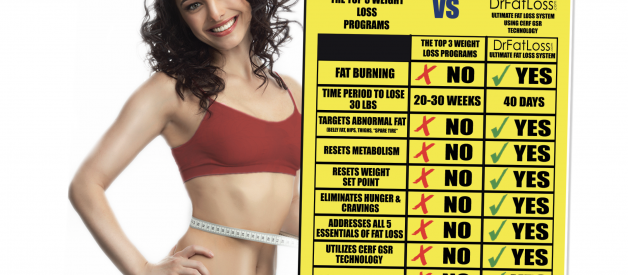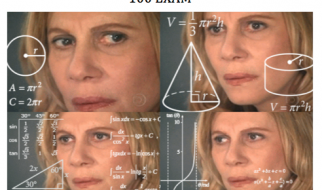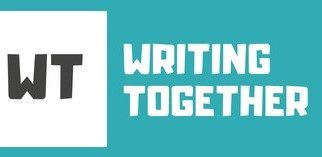Ads for the Bensonhurst weight-loss clinic may be too good to be true
By Sachi McClendon
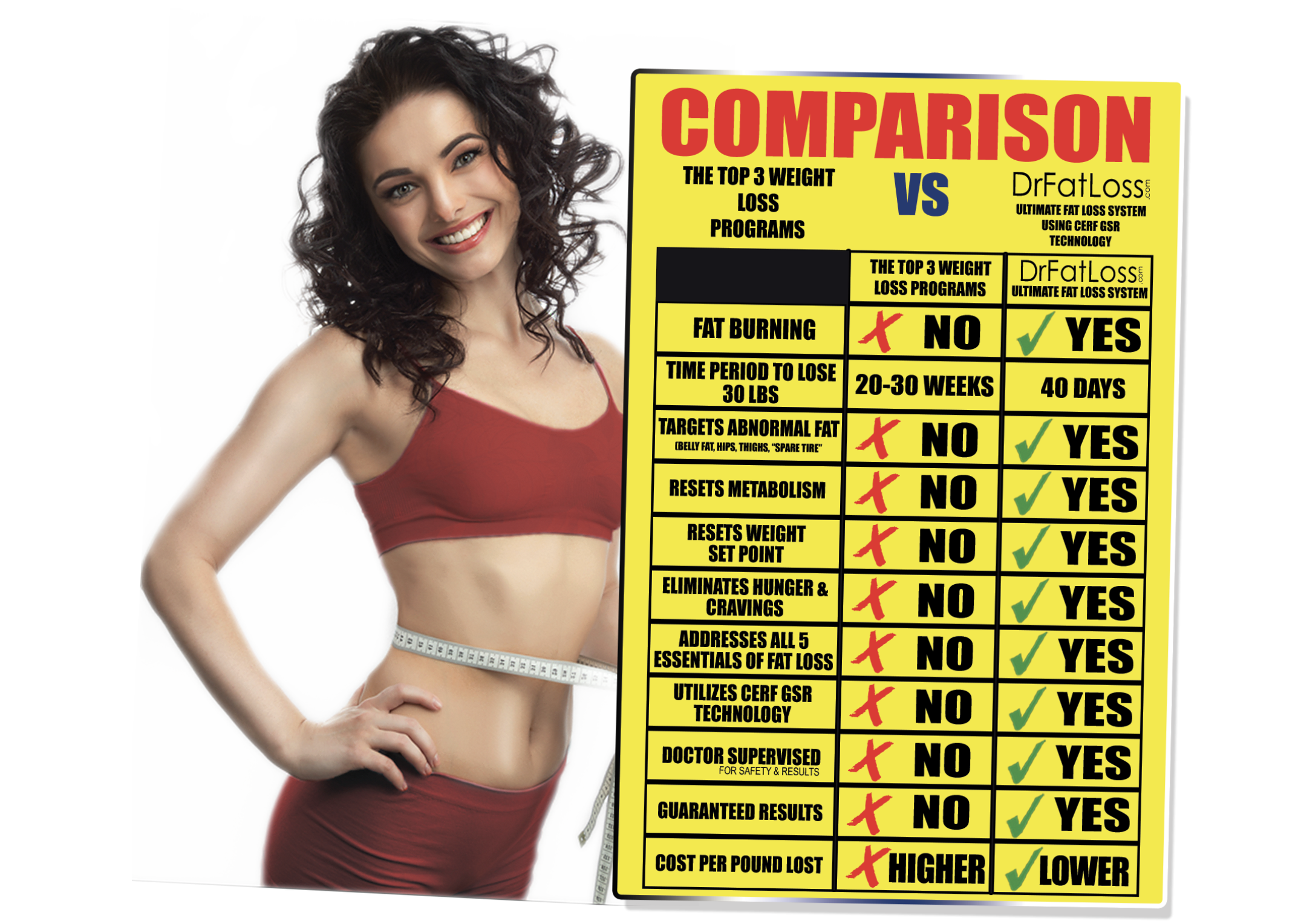 A screenshot of an ad taken from Dr. Fat Loss? website
A screenshot of an ad taken from Dr. Fat Loss? website
Dr. Fat Loss, a weight-loss clinic operating out of Bensonhurst, guarantees its patients will ?Lose 20 to 45 pounds in 40 days.? As the ads put it, No hunger. No cravings. Fast and easy. The implicit promise: Pay us $2,000 and you?ll have a new body in no time. Sounds magical, right?
Here?s the problem: Dr. Fat Loss features ads on social media and on its website, like the one pictured above, that the Federal Trade Commission has deemed deceptive. In April of 2017, the FTC filed a complaint with four counts related to misleading advertising against Dr. Fat Loss? mother company, NutriMost. To resolve the FTC complaint, NutriMost, fresh off its legal lashing, agreed to pay $2 million back to consumers who had been misled as well as terminate its fast-and-loose advertising campaign. The settlement further banned all current NutriMost licensees ? which includes Dr. Fat Loss ? from engaging in the same deceptive advertising.
Yet, more than a year after the complaint, Dr. Fat Loss continues to publish ads that brush up against ? and, in some cases, seem to outright cross ? the bounds of the FTC settlement.
In April of 2017, the FTC prohibited NutriMost and its licensees from making the claim that their diet, ?enables users to lose weight, including 20?40 pounds.? Yet, ?Lose 20 to 45 pounds in 40 days? effectively serves as the slogan for Dr. Fat Loss. The line is written multiple times in ads on Dr. Fat Loss? Facebook page ? all of which continue to run after the FTC crackdown ? and is featured on the first page of its website. You can even find the phrase on the company water bottle. According to NutriMost?s attorney, Chad Wissinger, while NutriMost and its licensees are within their rights to claim that users can lose a set amount of weight, they are not allowed to say in how many days. Dr. Fat Loss fails to meet that standard.
NutriMost and licensees like Dr. Fat Loss were also banned by the FTC from claiming to be able to burn a specific amount of calories. Yet Dr. Fat Loss did it anyway ? ?Excuses Don?t Burn Calories, But We Do! Burn Upwards of 2000?4000+ Calories a Day.? NutriMost and its licensees were banned from claiming that their product ?targets abnormal fat.? Again, Dr. Fat Loss disregarded that rule. Finally NutriMost and, again, its licensees were told they couldn?t claim their diet ?effectively treats, mitigates, or cures a disease, including diabetes or psoriasis.? Yet Dr. Fat Loss posted a video on its Facebook page titled: ?We can reverse you [sic] DIABETES.?
It should be noted that the FTC said that NutriMost and licensees like Dr. Fat Loss could make these claims if they provided reliable scientific evidence to substantiate them. At the time of the complaint, they had not, according to the FTC. Furthermore, nowhere on Dr. Fat Loss? site can you find links to studies that corroborate the company?s claims. Wissinger said that NutriMost began scientific testing to backup its claims in the spring of 2018. However, the company has yet to publish any results.
The man who is the face of Dr. Fat Loss ? a chiropractor turned weight-loss expert named Dr. Enrico Ferdico ? hung up the phone when a reporter called. He did not return several subsequent calls, texts, or emails. In June of 2016, the Better Business Bureau raised concerns about Dr. Fat Loss? advertising. The company has yet to respond.
To be clear, the FTC only formally named NutriMost, a national company with more than 160 franchises and licensees around the United States, in its complaint. NutriMost supplied the licensees, including Dr. Fat Loss, with everything they needed to run a weight-loss clinic in its image: flashy ads, before-and-after testimonials, vitamins, and a diet plan that restricts its users to eating as little as 500 calories per day. Five hundred calories is the equivalent of one McDonald?s milkshake.
And according to the 2017 FTC complaint, NutriMost neglected to inform consumers that they would have to follow this very low calorie diet before they put their money down. The FTC writes, ?In numerous instances?they have failed to disclose or disclose adequately that the NutriMost System requires users to follow a very low calorie diet of approximately 500 calories a day. This fact would have been material to consumers in deciding whether to purchase the NutriMost System.? As a consequence, consumers just didn?t know what they were buying into.
Yet Dr. Fat Loss, more than a year since the April 2017 final judgement, seems to have the same problem. The Brooklyn Ink has spoken to three patients who went to Dr. Fat Loss after the FTC settlement. All three followed a calorie-restricted diet. One said she was told to follow a 1,200-calorie diet, while the other two were told to follow around a 500-calorie diet. According to its site, Dr. Fat Loss? staff ?customize and personalize a program according to your body?s test results,? which could account for the discrepancy in its patients? diet programs.
Nonetheless, according to the FTC settlement, NutriMost and its licensees must disclose in their ads, ?clearly and conspicuously, that users are required to follow a calorie-restricted diet,? if their product does indeed restrict calories. Separately, they must disclose the ?daily calorie intake? of a ?VLCD? (or very low calorie diet), which is a technical term for any dietary regimen that provides less than 800 calories per day.
After scouring scores of Dr. Fat Loss? social media and website ads, The Brooklyn Ink wasn?t able to find an instance in which the company alerted consumers to the specifics of a very low calorie diet, which two of its patients said they went through. What you do see are phrases like ?Kiss 20?45 pounds away?; ?No Strenuous Activity? and ?You will NOT be Hungry.? In fact, when you go onto the Dr. Fat Loss website, a large banner reads: ?This is not a diet or weight loss program, this is a life changing program.? On a Facebook post in early October the company wrote ?Stop dieting, diets don?t work. Come see us at one of our 3 locations and learn how to burn fat, balance hormones and reset your metabolism so you will never have to ?diet? again.? On the company?s site, there is only one mention of a low calorie meal plan, towards the bottom of the second page.
 A screenshot taken from Dr. Fat Loss? website
A screenshot taken from Dr. Fat Loss? website
In late 2015, Fern Arcieri, who lives in Brooklyn, was driving home listening to the radio when a Dr. Fat Loss ad came on. ?Lose 20 to 45 pounds in 40 days,? she remembered it said. Right away, Arcieri set up an appointment with Dr. Fat Loss, hopeful that she?d found a solution to her struggle with her weight.
Later that week she pulled up to the clinic, on 86th street in Brooklyn, and met Dr. Ferdico, the chiropractor who runs the clinic. She had body composition tests run, and was convinced to sign up for the program, paying half of the $2,000 fee right then and there. Arcieri then went home and opened the diet booklet she would be beholden to for the next 40 days.
The first thing Arcieri noticed was that she was not to consume more than 500 calories per day. The doctor hadn?t told her that. She called her personal doctor, worried about what she had gotten herself into, and her doctor advised her not to follow the 500-calorie diet. It was unsafe, he said.
That same day Arcieri says she called Dr. Fat Loss, asking for a refund. No, Dr. Ferdico said. Arcieri pleaded, she says, promising to return the program and the supplements right away. Again, Dr. Ferdico, she says, wouldn?t budge. Instead of losing 20 to 45 pounds in 40 days, Fern Arcieri lost $1,000 in an afternoon.
Another patient of Dr. Fat Loss, Jareen Joseph, recounts a similar story. She went to see Dr. Fat Loss in the summer of 2017, after the FTC settlement, and was not told the specifics of the diet until after she had paid. Again, Joseph was shocked by how little she could eat. After following the diet, she says she became fatigued, irritable, and was constantly having headaches. She quit the program, out of fear of her health, she says, and wrote a review on Yelp, discussing the experience. According to Joseph, Dr. Fat Loss then called asking her to take down the review, saying that he knew a lot of people in high positions at her place of work. ?I know what a threat is,? she told The Brooklyn Ink. ?He was trying to scare me.?
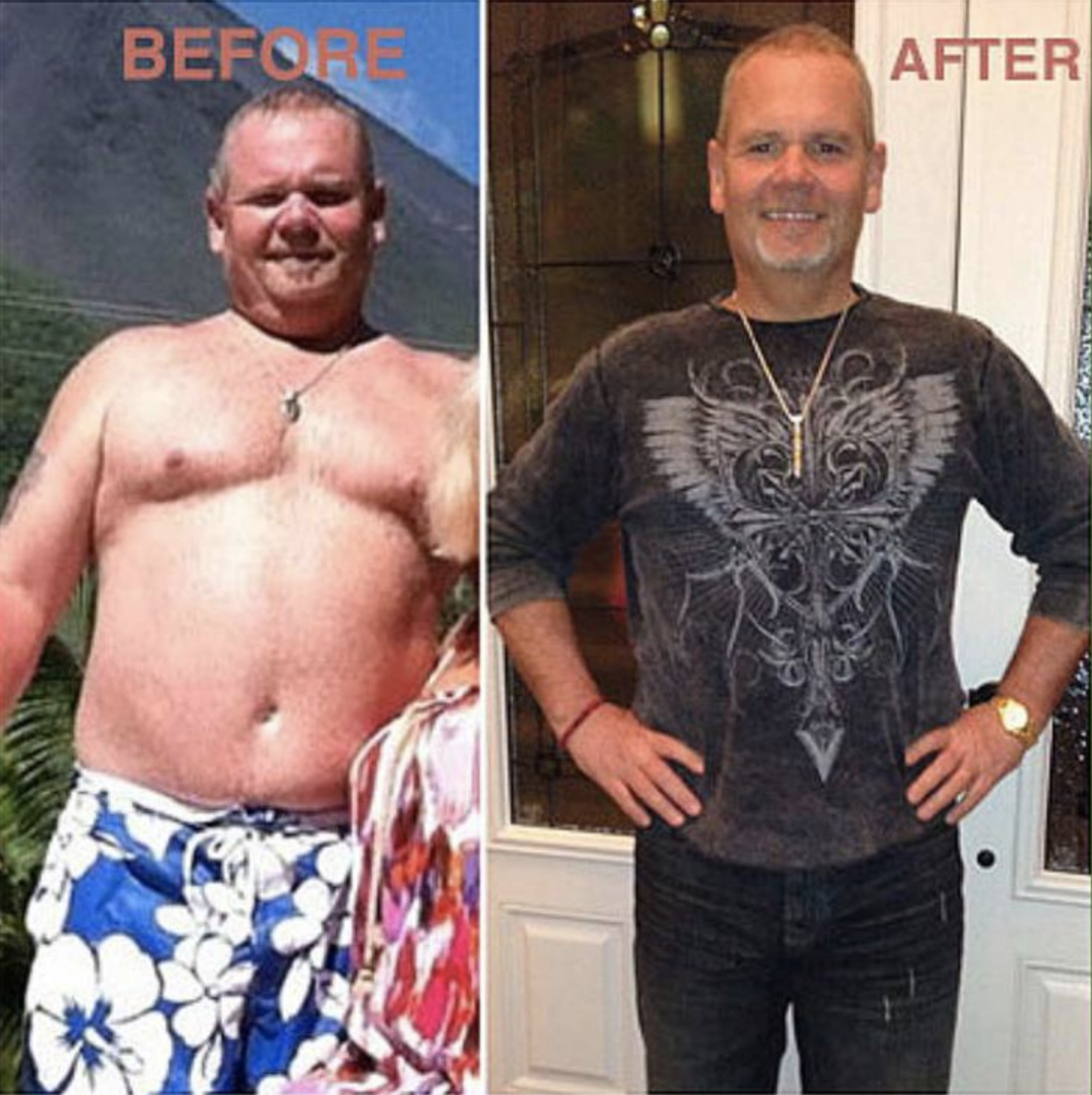 A screenshot of before-and-after photos of Dr. Vince Fraumeni, taken from Dr. Fat Loss? Facebook page
A screenshot of before-and-after photos of Dr. Vince Fraumeni, taken from Dr. Fat Loss? Facebook page
Meanwhile, on both its website and social media accounts, Dr. Fat Loss displays before-and-after photos ? a shirtless one looking somewhat heavy and an ?after? shot looking trim ? of one Dr. Vince Fraumeni. As it turns out, Dr. Fraumeni operates his own NutriMost franchise. In the settlement, the FTC demanded that NutriMost and its licensees disclose any monetary connection existing between NutriMost and a patient featured in a testimonial. In fact, the testimonial of Dr. Vince Fraumeni was used as evidence of deceptive advertising in the FTC settlement. Yet, in the five times Dr. Fraumeni?s before-and-after photos have been posted on Dr. Fat Loss? Facebook page since the FTC settlement, there is no disclaimer alerting the consumer to Dr. Fraumeni?s monetary relationship to NutriMost.
Furthermore, Dr. Enrico Ferdico has featured his own image in before-and-after shots, without noting that he is in fact Dr. Fat Loss and runs the clinic.
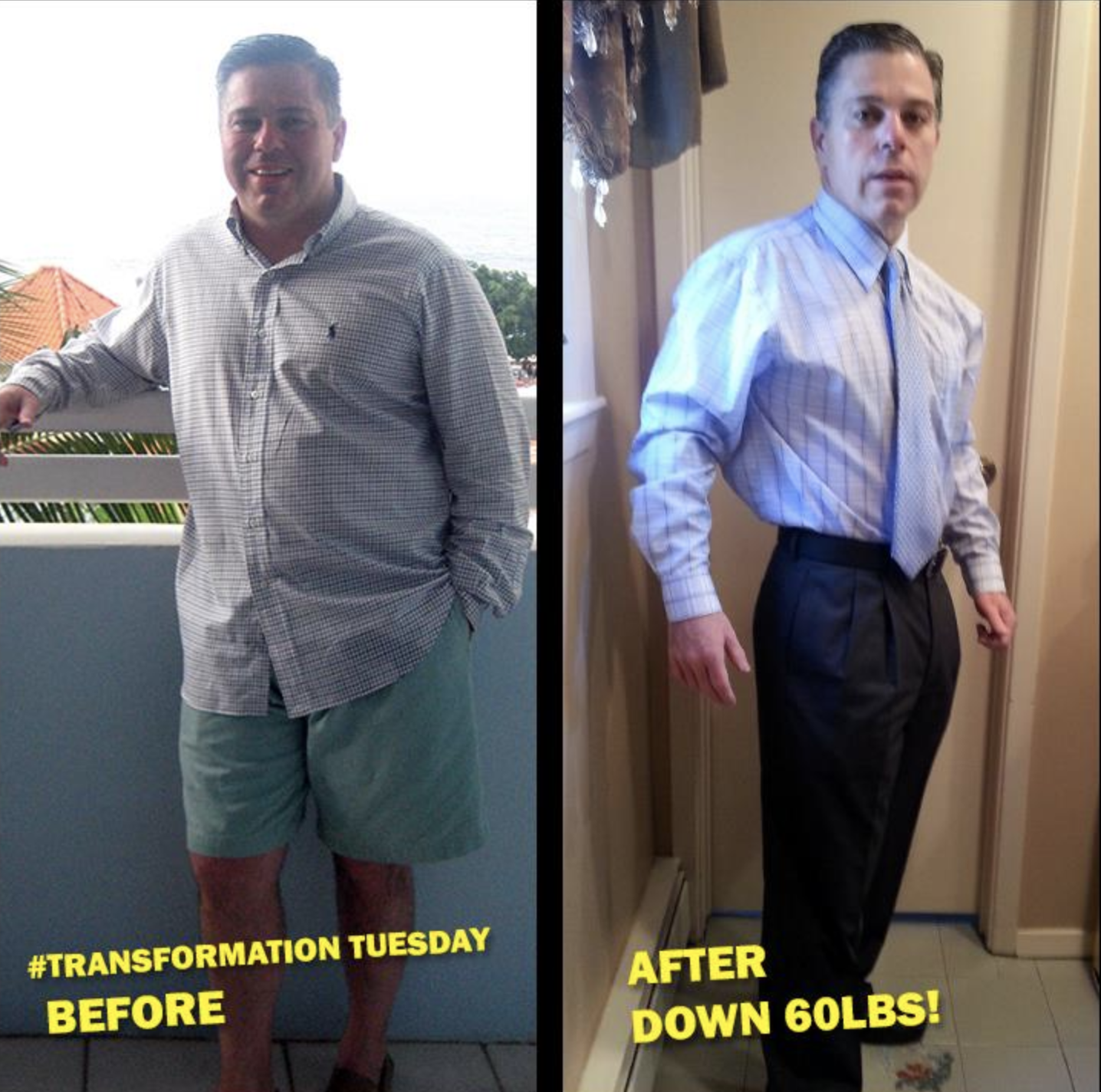 Screenshot of Dr. Ferdico?s before-and-after photos, taken from his company?s Facebook page.
Screenshot of Dr. Ferdico?s before-and-after photos, taken from his company?s Facebook page.
In the April 20, 2017 settlement, the Federal Trade Commission ordered NutriMost to communicate the terms of the settlement to all of its current licensees. Wissinger, the NutriMost attorney, assured The Brooklyn Ink NutriMost had done just that. Wissinger said he had reached out to Dr. Fat Loss in an attempt to get the company to rein in its ads to meet the guidelines of the FTC settlement. Dr. Ferdico has yet to respond to Wissinger?s request, the attorney said. If Dr. Ferdico does not get back to him, Wissinger added, NutriMost might have to terminate its license with Dr. Fat Loss. The FTC itself declined to comment on this or any matter relating to the settlement.
The Brooklyn Ink has talked to several patients of Dr. Fat Loss who have indeed lost weight on its program. And of the six former patients who spoke to us, three were generally pleased with the results. The others had problems with it.
To be sure, you don?t need a registered dietician to tell you that eating around 500 calories a day will probably result in weight loss. What you might need, though, is a registered dietician to tell you the potential negative effects of going on a 500-calorie diet. Peter Adintori, a registered dietician at the Mount Sinai PhysioLab, said extremely restrictive diets ? like the Dr. Fat Loss diet at least some patients said they were told to follow ? are not something he would recommend. ?There?s no way someone eating that amount of calories can be meeting their daily nutritional needs,? he said. Adintori also said that the weight will often come back once you?re off such a diet.
The unfortunate truth is that losing weight in any sustainable manner is challenging. Adintori said, ?The key message I tell all of my patients is that it takes a lot of work and a lot of time.? In other words, it?s not easy. It?s not fast. It?s not simple.
Follow Sachi McClendon @mcclendonSachi
